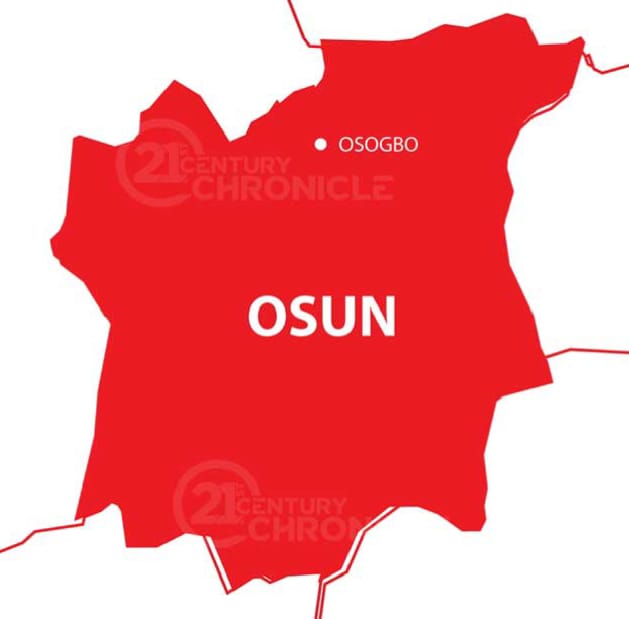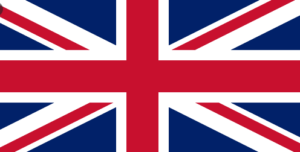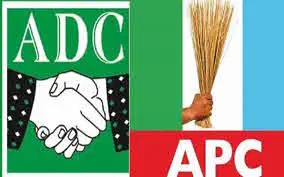Will SSB tax help parents manage obesity in their children?
[ad_1]
A recent excise tax known as sugar-sweetened beverages tax (SSB tax) was introduced through the Finance Act of 2021. PAUL OMOROGBE examines how this pro-health tax can help solve a growing public health concern in Nigeria, namely obesity in children.
Studies have shown that despite being the poverty capital of the world, Nigeria is facing a growing epidemic of obesity. A good number of Nigerians who are obese are children. Consumption of sugary drinks can lead to obesity among children, medical studies have revealed. Through the Finance Act of 2021, the government of Nigeria introduced an excise duty on sugar-sweetened beverages (SSB) primarily in order to discourage the overconsumption of sugary drinks. However, according to experts, the prevailing SSB tax rate of N10/litre seems insufficient to curb the overconsumption of sugary beverages in Nigeria. The World Health Organisation (WHO) recommends at least a 20 per cent price increase for a significant reduction in consumption
Is obesity a challenge in Nigeria?
“Yes, obesity is a growing problem in Nigeria,” Dr Francis Fagbule, a public health specialist at the University College Hospital, Ibadan, told the Nigerian Tribune.
“According to a study (meta-analysis) published in 2022, 39.0 percent of Nigerian adults were obese. The increased burden of obesity has been attributed to changes in lifestyle, including increased consumption of high-calorie drinks (sugar-sweetened beverages), high-fat foods, and decreased physical activity,” Dr Fagbule added.
Some people believe that it’s impossible to become obese in Nigeria, said Hajiya Jummai Hassan Abdul, clinical nutritionist/dietitian at Karshi General Hospital, Abuja, in a report.
“But it’s easy for one to become obese because our diets are changing. We have poor dietary habits, which cause us to consume refined sugars and fizzy drinks. In addition, we have lifestyles that stress our bodies.”
She added that “Obesity can affect anybody, whether a child or an adult. But, in some cases, the most affected group are adults, due to their sedentary lifestyle.”
Data from the WHO has shown that the prevalence of overweight and obesity in Nigeria increased by about 20 per cent between 2002 and 2010.
Overweight refers to a body mass index (BMI) between 25kg and 29.9kg/m², obesity refers to a BMI greater than 30kg/m².
Obesity among children
Speaking further with the Nigerian Tribune, Fagbule explained that childhood obesity is also a growing problem in Nigeria.
“Several studies have reported varying prevalences of obesity among children and adolescents, with about one out of every ten children/adolescents being obese,” he noted.
“Childhood obesity can have serious health consequences, including an increased risk of developing type 2 diabetes, heart disease, and other chronic illnesses. In addition, obese children are more likely to become obese adults, which further increases their risk of developing these health problems.
The sugary drinks connection
According to Dr Fagbule, “Excess consumption of sugar-sweetened beverages has been identified as a significant contributor to obesity, both globally and in Nigeria. These beverages contain high levels of free sugars, which contribute to the excess calorie intake that can lead to weight gain and obesity.
“Studies have found that individuals who consume sugary drinks regularly are more likely to be overweight or obese compared to those who do not consume these beverages.”
What really is a ‘sugary drink’?
Sugary drinks include any liquids, powders, or other concentrated forms that contain natural or added sweeteners, not limited to and including various forms of sugar like brown sugar, corn sweetener, corn syrup, dextrose, fructose, glucose, high-fructose corn syrup, honey, lactose, malt syrup, maltose, molasses, raw sugar, and sucrose.
This may include soft drinks, juices (even 100 percent juices), nectars, sweetened coffee, sugar cane juice, sweetened tea, energy drinks, and flavoured dairy products.
The term “sugar-sweetened” is used to distinguish these beverages from those that are naturally sweetened, such as milk, and some plant-based beverages like coconut water.
However, while 100 percent fruit juices may not contain added sugars, it has been classified with SSBs because they contain a significant amount of “free sugar.”
The WHO adopted the term “free sugar” in place of the potentially confusing term “added sugar.”
Free sugars include monosaccharides and disaccharides added to foods and beverages by the manufacturer, cook, or consumer, and sugars naturally present in honey, syrups, fruit juices, and fruit juice concentrates.
A pro-health tax to curb sugary drinks intake
In 2021, the Nigerian government introduced the sugar-sweetened beverages (SSB) tax, popularly known as SSB tax.
The excise tax was introduced through the Finance Act 2021 under Section 17, on carbonated drinks and sugar-sweetened non-alcoholic beverages produced, imported, distributed and sold in Nigeria.
The SSB tax has been described as a “pro-health, aimed at reducing overconsumption of SSBs in order to lower the burden of non-communicable diseases (NCDs).”
It is levied at 10 Naira on each litre (US$0.02 /litre) of all non-alcoholic and SSBs, but not indexed to inflation.
An economist and Augustine Iraoya, member of the African Economic Research Consortium (AERC) Network member, noted that “the marginal price increases (N10 per litre) may not be sufficient to alter the excessive consumption patterns of SSBs.
“WHO recommends at least a 20 percent price increase for a significant reduction in consumption.”
According to him, “Benchmarking the levy on the quantity of sugar in each litre of drink would perhaps serve a more targeted purpose e.g. incentivizing product reformulation.
“Notwithstanding, this is a good start and it should be improved over time!”
Does tax really reduce sugary drinks consumption?
When asked about the effectiveness of taxing SSBs to reduce their consumption, Iraoya said that “Empirical evidence across the world shows that raising the price of SSBs through a tax on SSBS decreases consumption of SSBs.”
He shared examples of other climes where SSB taxation has worked.
“For instance, Mexico’s tax on SSBs took effect on 1 January 2014. Evaluation of the impact of the tax policy shows that purchases of taxed beverages decreased 5.5 per cent within the first year of implementation and 9.7 per cent in the second year (2015) of implementation.
“On January 1, 2017, Philadelphia in the United States implemented a beverage tax of $0.015/ounce on SSBs. An assessment of the ‘Short-Term Impacts of the Philadelphia Beverage Tax on Beverage Consumption’ shows that the odds of daily consumption of regular soda were 40 percent lower.
He added that in another city in the United States called Berkeley, “excise tax also reduced SSB consumption by 21 per cent.”
SSB industry pushback
Akinbode Oluwafemi, the Executive Director of Corporate Accountability and Public Participation (CAPPA), speaking on the subject, said that “SSB industry players continue to prioritise their profits over the well-being of the people and the nation’s public health.
“The SSB industry has a long history of undermining public health policy.
“Their industry is built on deception and manipulation of science.”
The Nigerian Tribune sighted a report by The Independent of UK titled “Drinking Coke and Pepsi may increase testicle size and testosterone production,” study says, published on March 1.
A similar article was published in The Mirror of UK on February 2023, entitled ‘Drinking Coke and Pepsi ‘may increase testosterone and make testicles bigger.’
According to the article, “Researchers at the Northwest Minzu University in China set out to determine the impact of carbonated drinks like Coca-Cola and Pepsi on fertility during a 15-day study.”
Akinbode added that the SSB industry “also engages in media manipulation.”
Indeed, there are media reports by industry stakeholders, including the Manufacturers Association of Nigeria (MAN), criticising the tax on soft drinks and other sugary drinks.
In November 2022, the hashtag #DontKillSoftDrinks trended on Twitter with several Nigerian influencers participating in it.
Towards a healthier public
Fagbule, a public health specialist, said, “Reducing the consumption of sugar-sweetened beverages is therefore an important public health measure to prevent and reduce obesity.
“Encouraging people to drink more water, unsweetened tea or coffee, or low-calorie beverages can help reduce the consumption of sugary drinks and lower the risk of obesity and related diseases.”
He added: “to address childhood obesity in Nigeria, there is a need for public health campaigns that promote healthy eating habits and physical activity among children.”
Iraoya stated that the SSB tax had impacted the consumption of SSBs. “In the Philippines, SSB tax implementation averted 5,913 deaths related to diabetes, 10,339 deaths from ischemic heart disease (IHD), and 7,950 deaths from stroke over 20 years.
“In South Africa, it had helped reduce obesity prevalence by more than three percent in men and more than two percent in women.”
In a 2017 report, the WHO stated that “obesity and diet-related NCDs are complex, multifaceted issues that will not be solved by a single policy measure.
“SSB taxes need to be implemented as part of a wider government approach to incentivizing and supporting healthy diets and promoting population health and wellbeing more broadly, based on global best practice recommendations.
[ad_2]














Post Comment